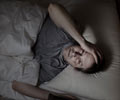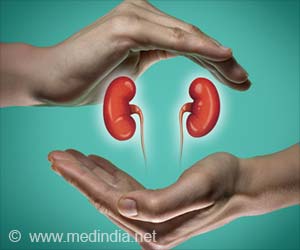Amber tinted blue light blocking glasses may protect the eyes from harmful light-emitting electronic devices which can cause insomnia.
Highlights
- Smartphones, tablets and other electronic devices that are lit by the LEDs, can have a peak wavelength at the blue portion of the screen spectrum
- By the use of blue light emitting electronic devices, melatonin an sleep inducing hormone is suppressed at night
- Amber tinted glasses designed to block the blue light may now prevent insomnia
To test their theory, the researchers recruited 14 individuals with an insomnia diagnosis to take part in a small study. For seven consecutive nights, participants wore wrap-around frames with amber-tinted lenses that blocked blue light or with clear placebo lenses for two hours before bedtime. Four weeks later, participants repeated the protocol with the other set of glasses.
The researchers found that participants got around 30 minutes extra sleep when they wore the amber lenses compared to the clear lenses. In self-reported sleep surveys, participants also reported greater duration, quality, and soundness of sleep, and an overall reduction in insomnia severity.
These findings are consistent with prior studies showing a benefit of blue-light-blocking lenses in improving sleep, but should be replicated in larger controlled studies, Shechter said.
"Now more than ever we are exposing ourselves to high amounts of blue light before bedtime, which may contribute to or exacerbate sleep problems," Shechter said. "Amber lenses are affordable, and they can easily be combined with other established cognitive and behavioral techniques for insomnia management."
"The glasses approach allows us to filter out blue-wavelength light from all these sources, which might be particularly useful for individuals with sleep difficulties."
References
- Elijah Wookhyun Kim, Marie-Pierre St-Onge, and Andrew J. Westwood . Blocking nocturnal blue light for insomnia: A randomized controlled trial, Journal of Psychiatric Research (2017).https://doi.org/10.1016/j.jpsychires.2017.10.015
Source-Eurekalert















